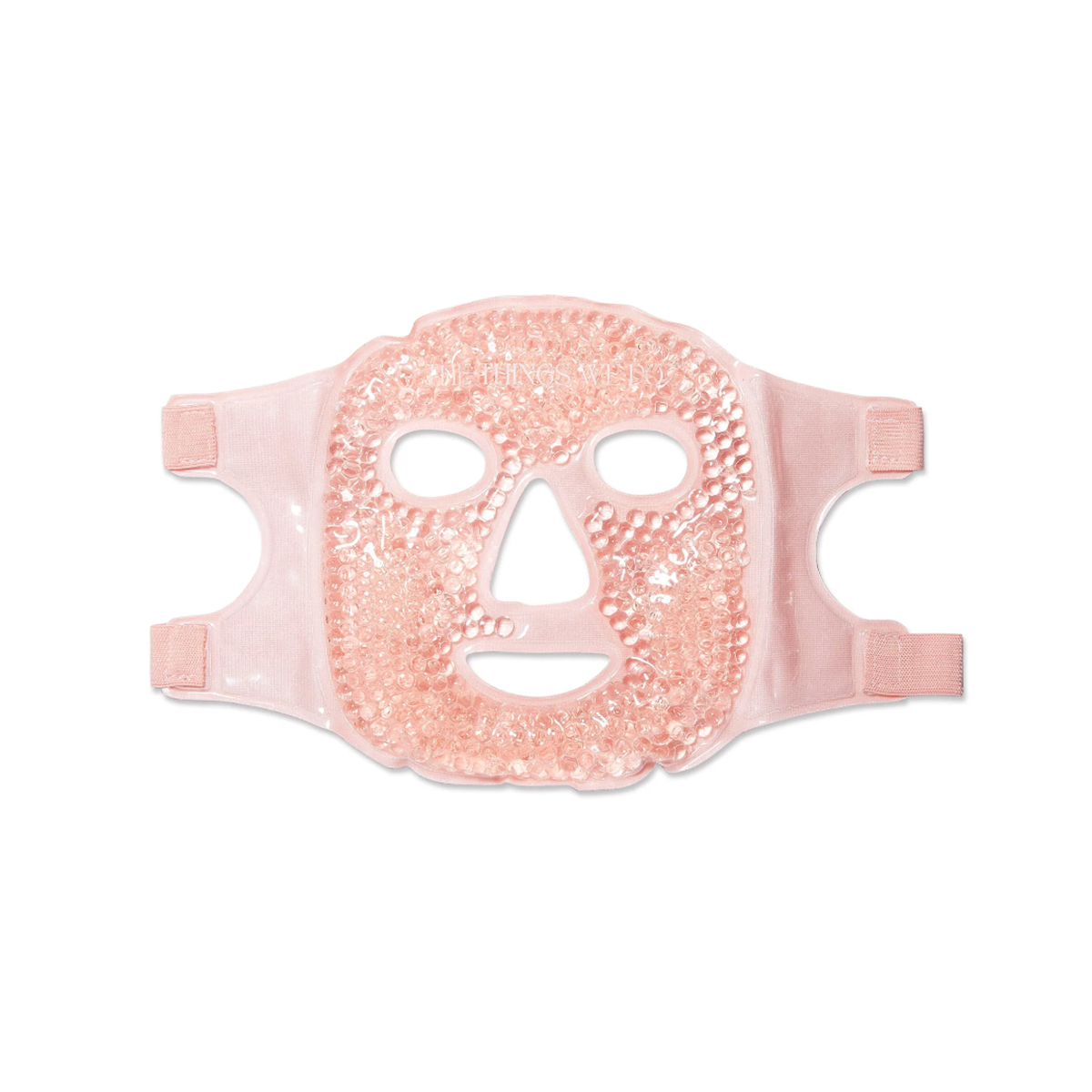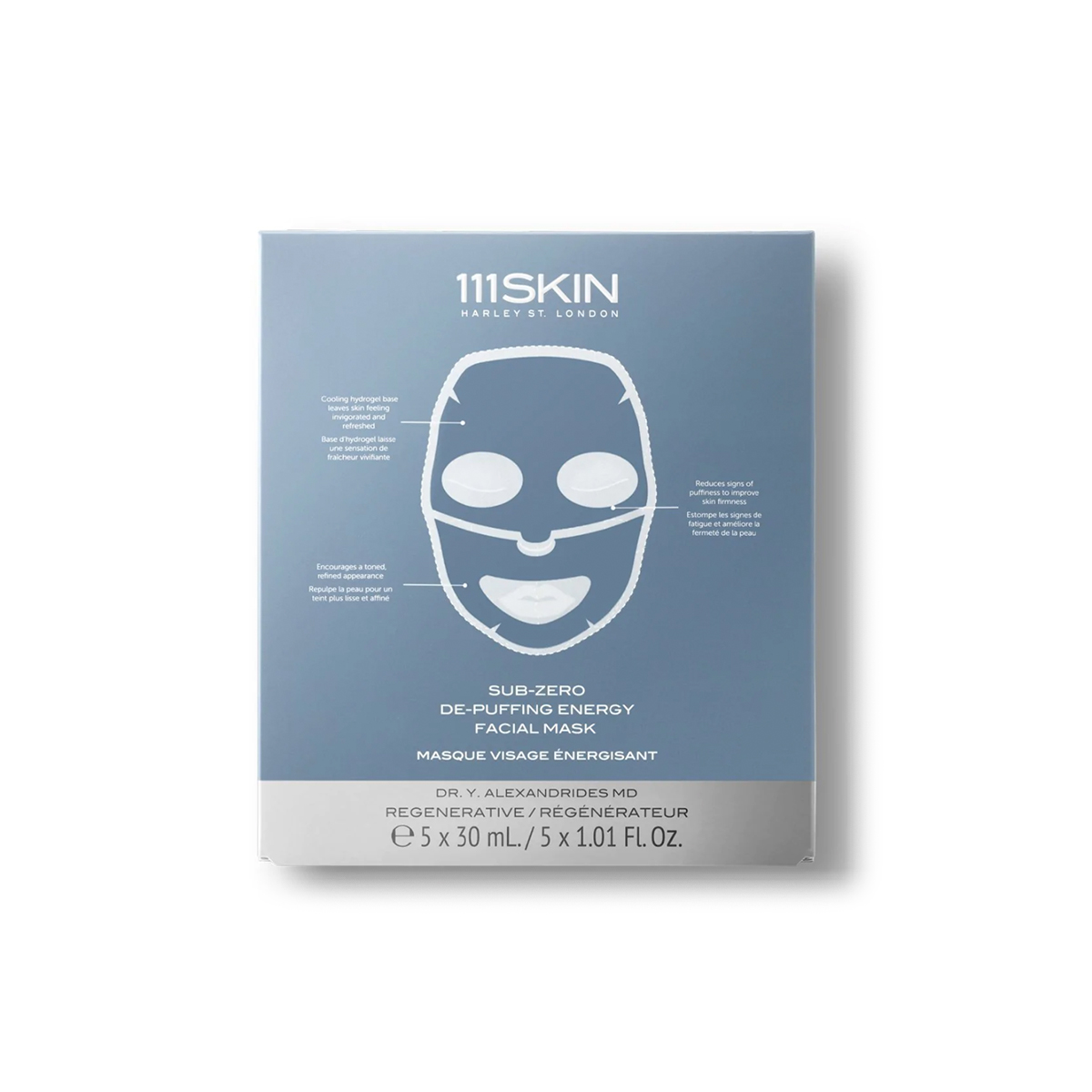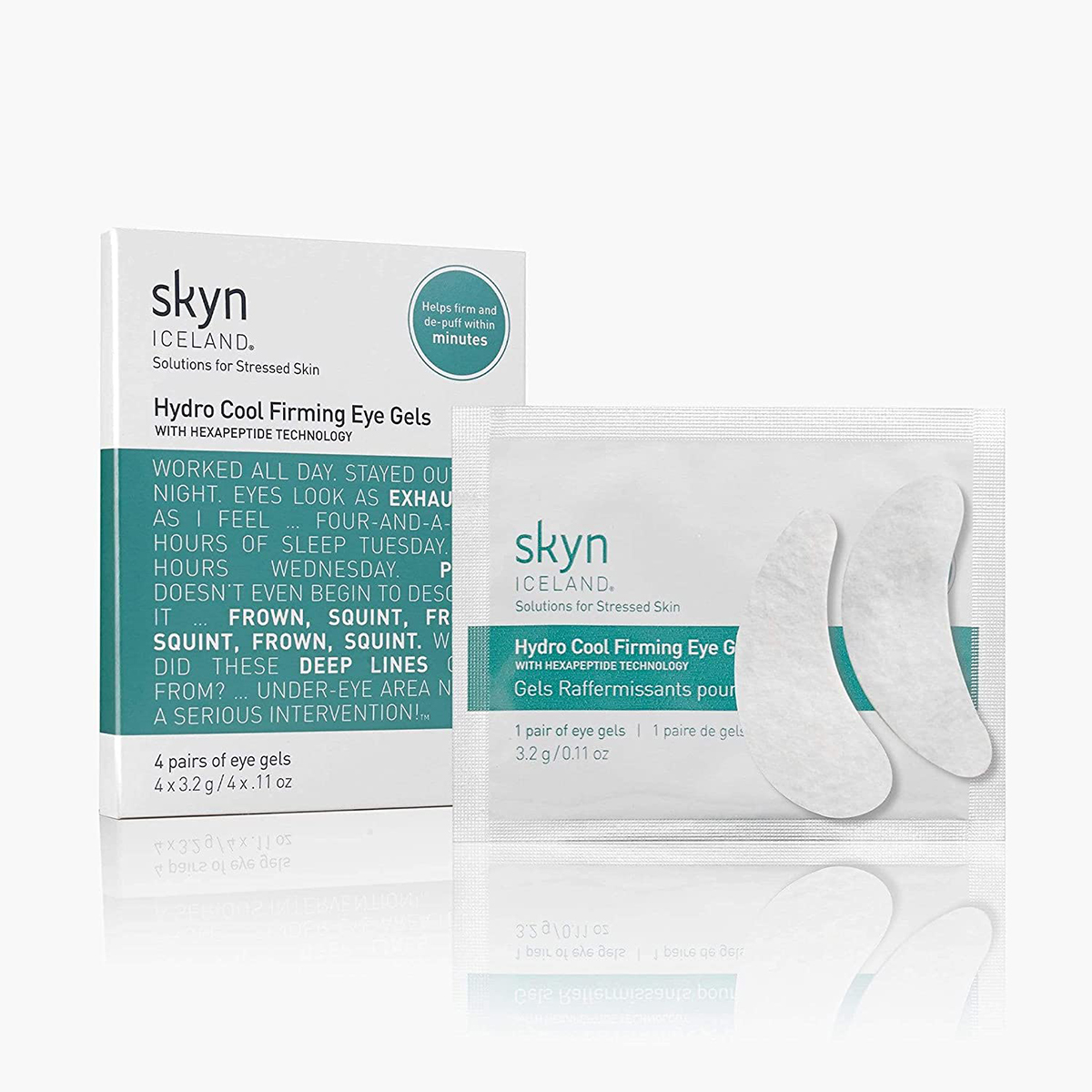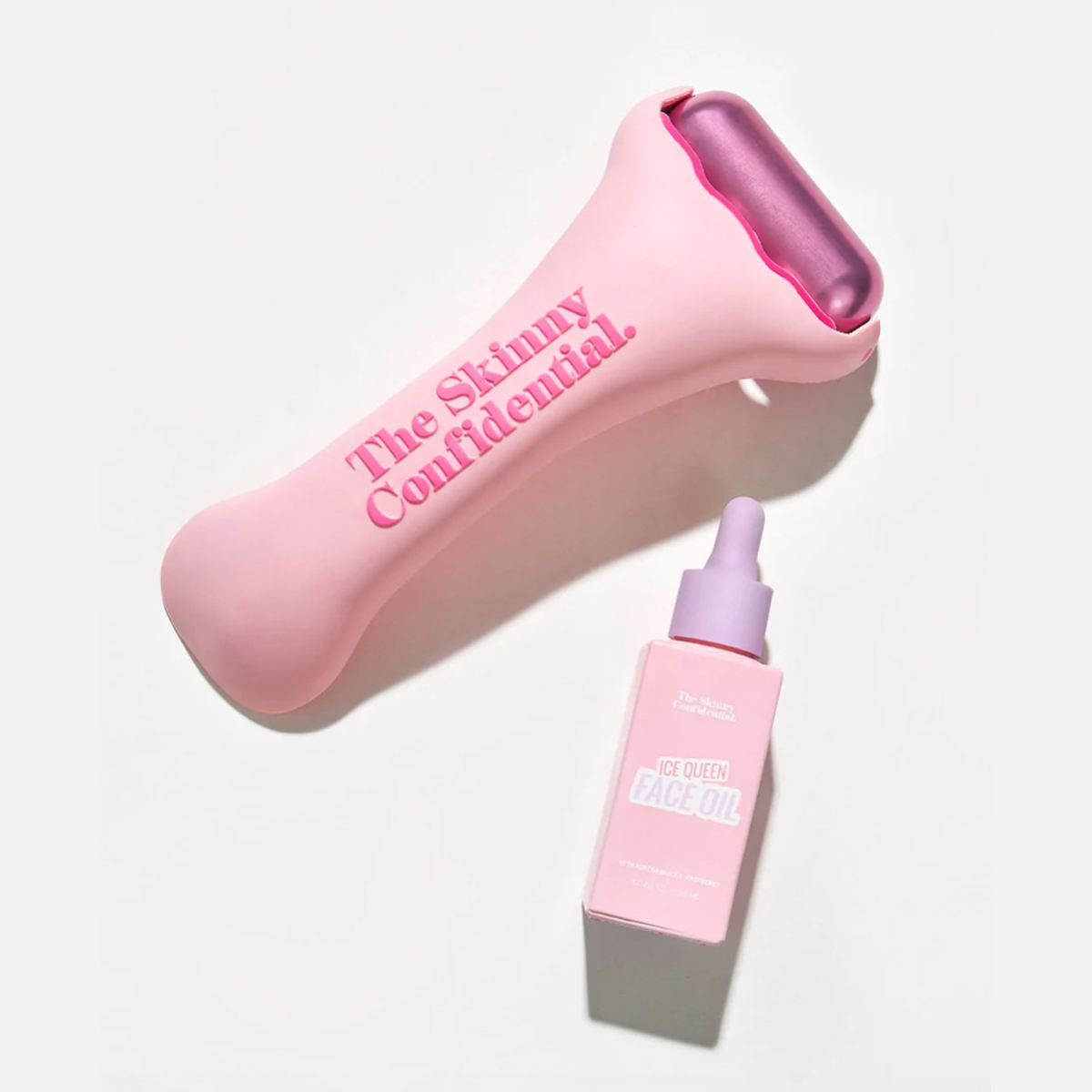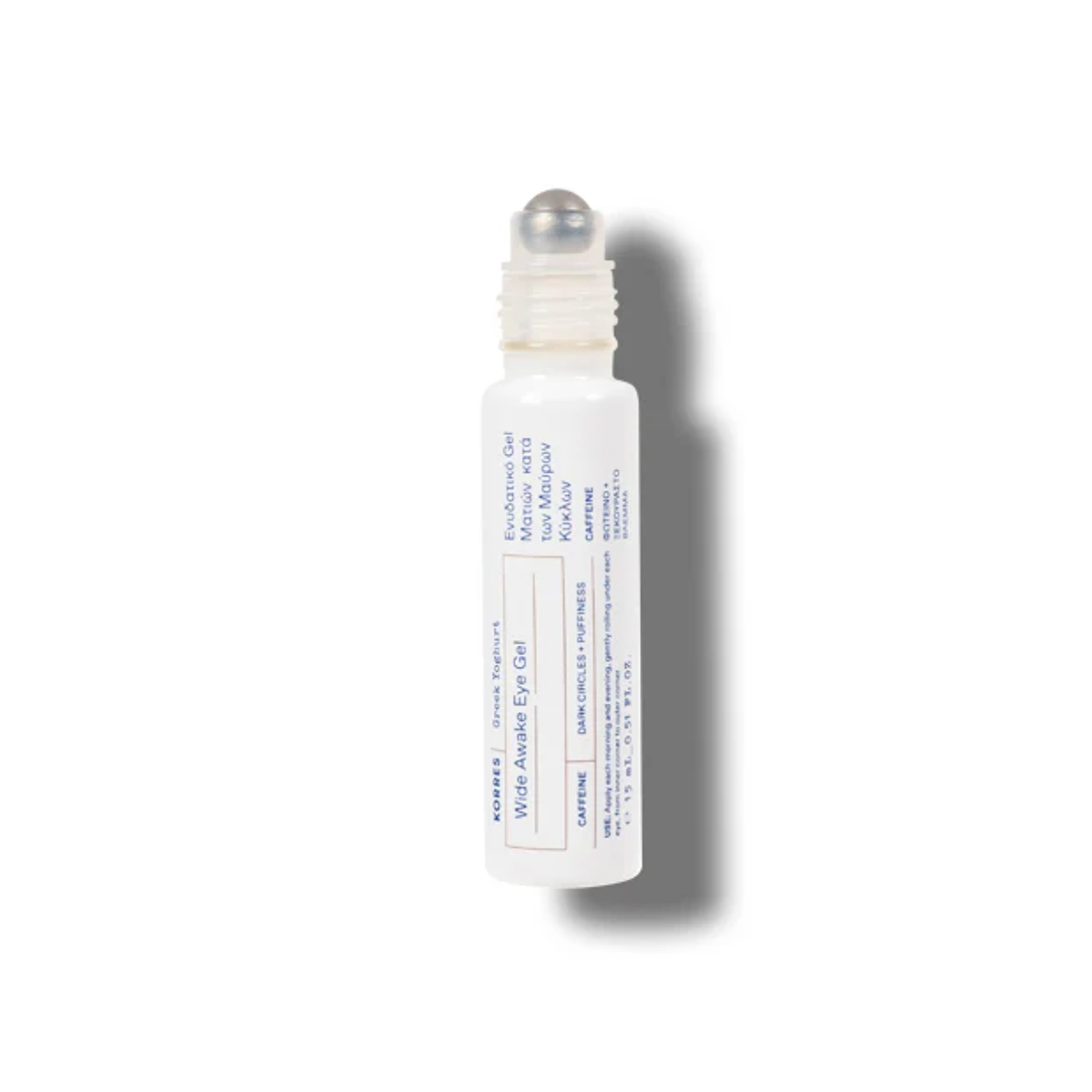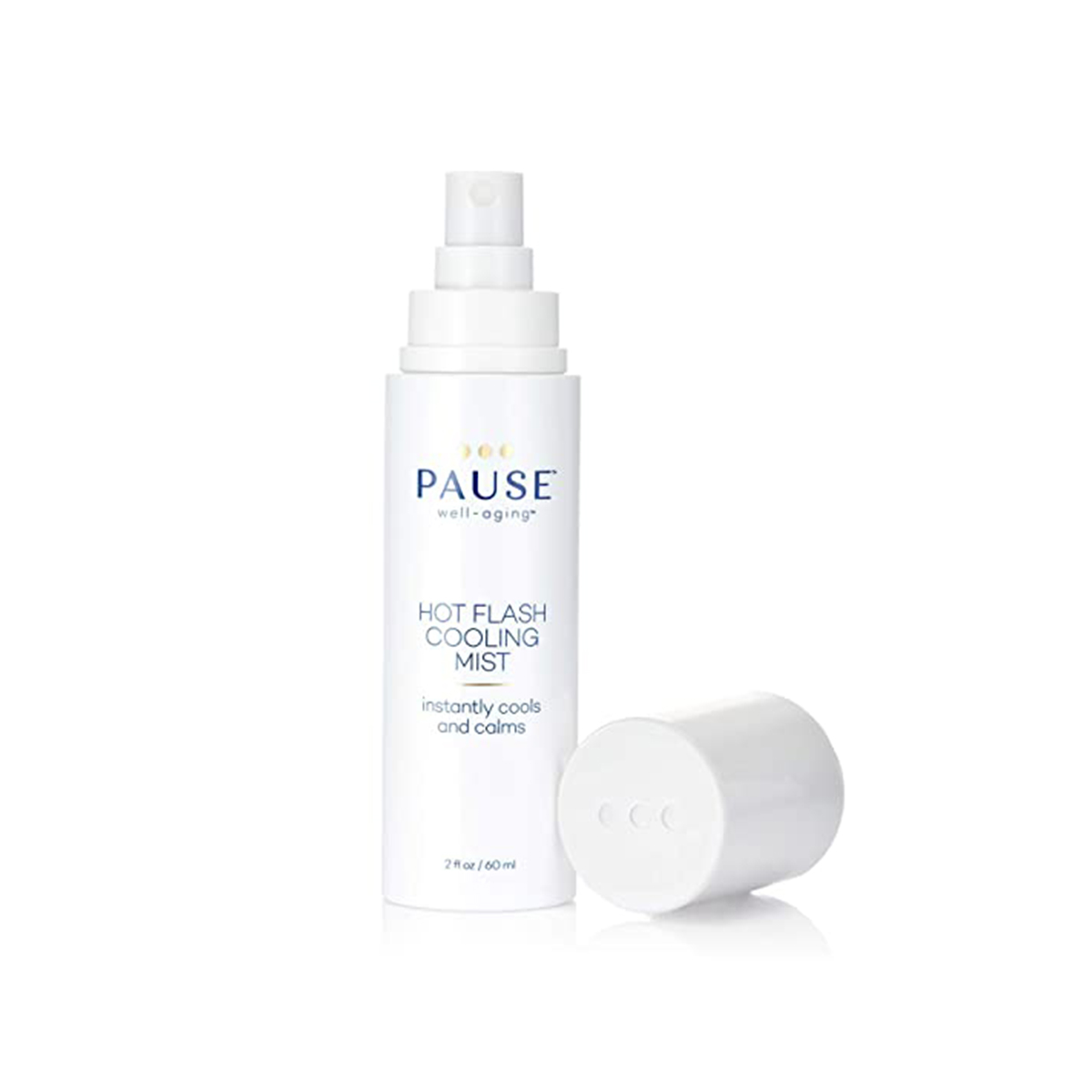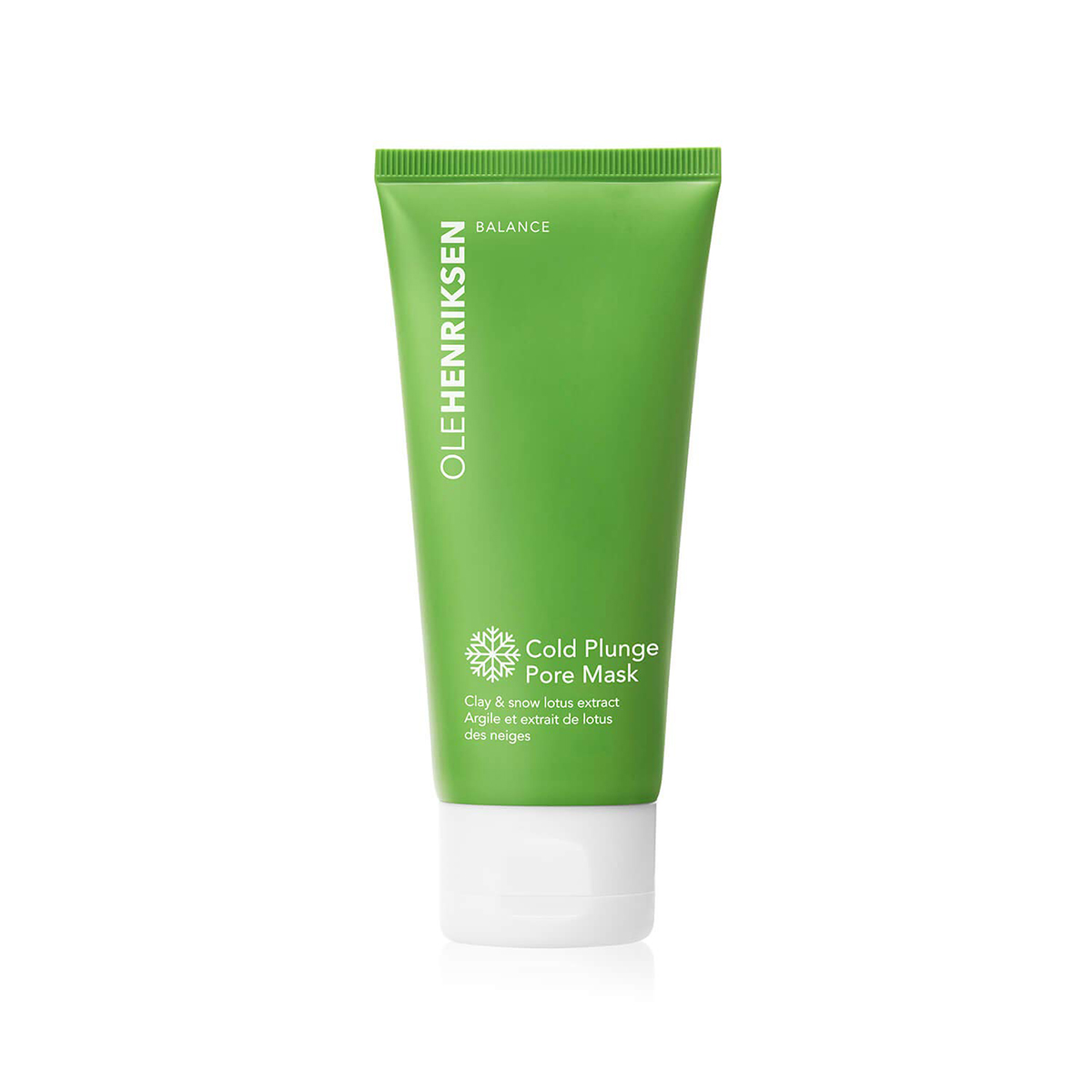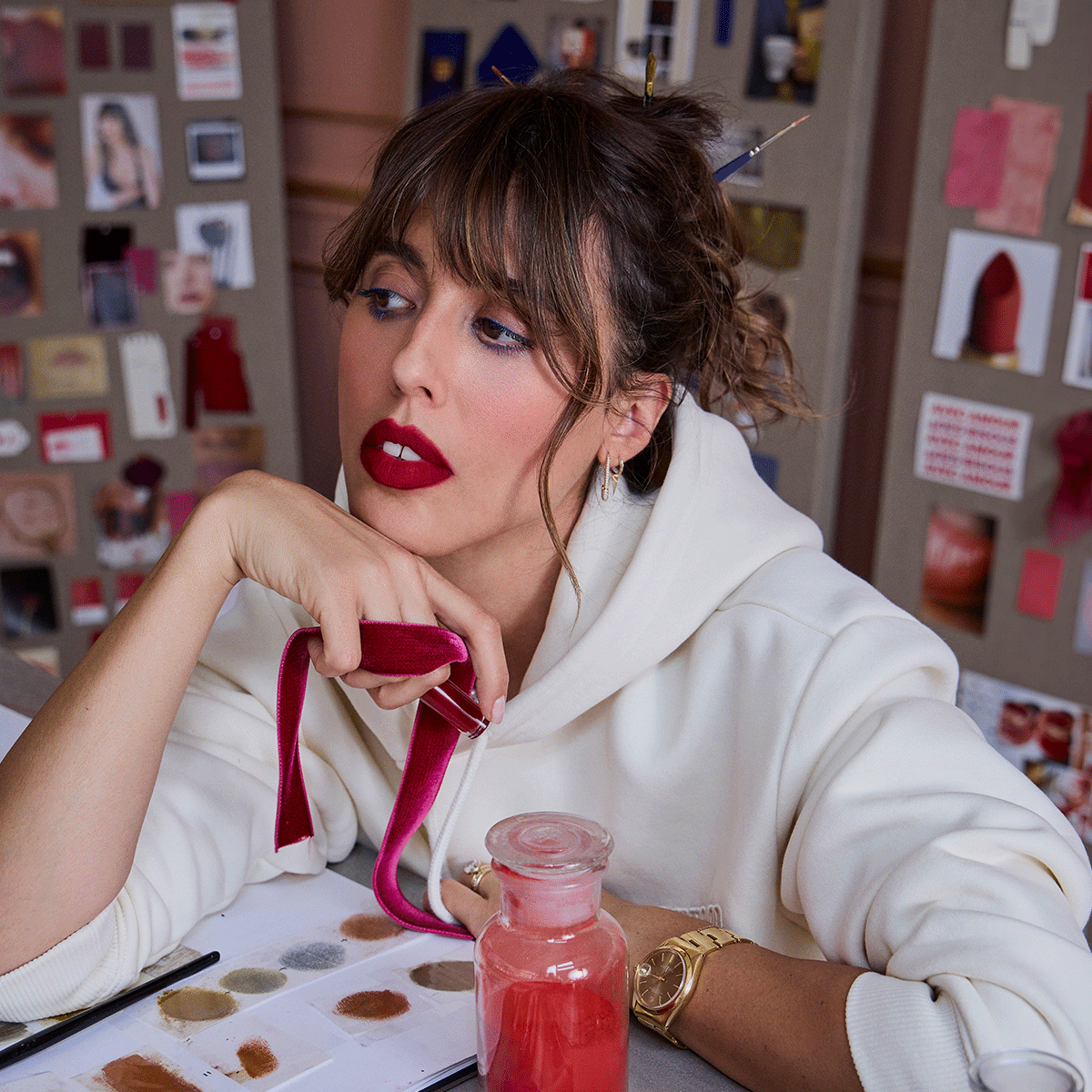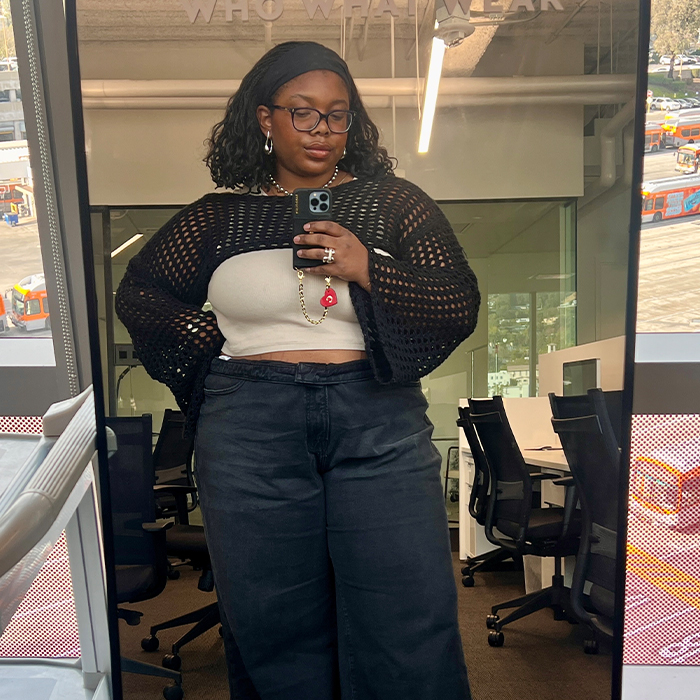I Got a Cryofacial, and Multiple Strangers Chased Me Down for My Skin Secrets
I consider myself the ultimate guinea pig when it comes to all things beauty. In fact, as long as I'm in the hands of a trustworthy professional, there really isn't anything I won't try. That said, despite the litany of facials I've received in my time as a beauty editor, there was a specific type I had yet to actually experience: a cryofacial. So, considering the amount of buzz and the bountiful perks I'd heard associated with the treatment, I thought it was high time I devirginize myself.
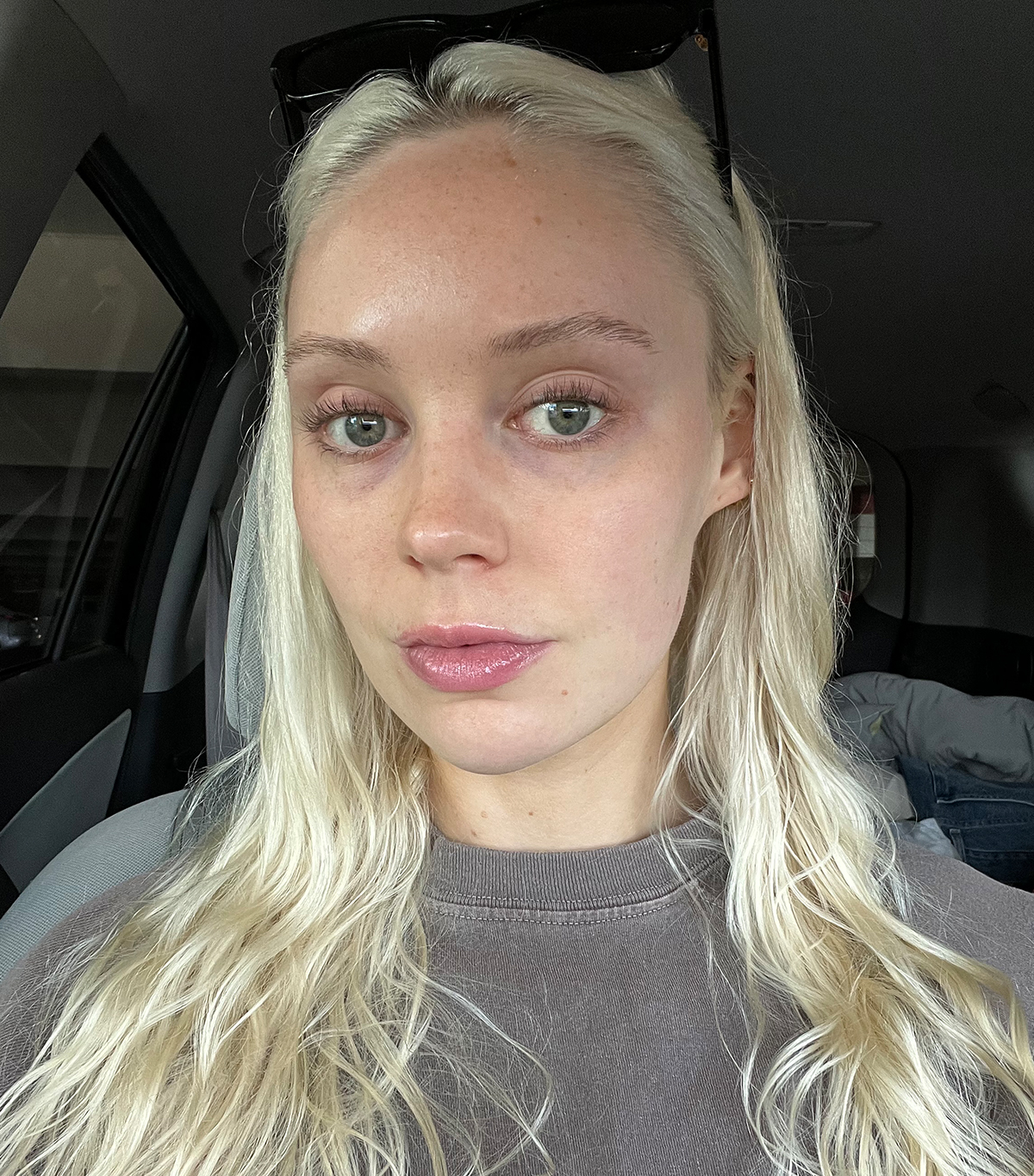
As I said, whenever I'm trying out a new treatment, I always make sure I'm seeing someone with tons of experience who I trust. I've been longtime obsessed with Vanessa Lee, RN, the founder of The Things We Do and master of all things skin, injectables, threading, and facial balance. There's no one I trust more when it comes to my skin and face, so I reached out to her team to see if I could tap her for a treatment and to help answer all of my burning questions about cryofacials. After learning more, it was recommended I receive a cryofacial as an add-on to either a Microinfusion Treatment (a gentle microneedling procedure that stamps neurotoxins, fillers, and serums into the skin for an ethereal skin finish) or a Carboxy Facial, which combines ultrasound technology and carbon dioxide to rejuvenate the skin from within. I've gotten microinfusion before, and am always obsessed with the results, so I went with that.

As no surprise to anyone, my experience at The Things We Do was amazing (I went to the super-chic The Row DTLA location, but they have equally stunning locations in Venice and Chino Hills), and my skin looked almost unrecognizably dewy, plump, and glowy the day after my treatment. The cryofacial provided immediate relief in terms of inflammation and redness after the microinfusion, and I would say said redness dissipated completely a couple of hours post-procedure.
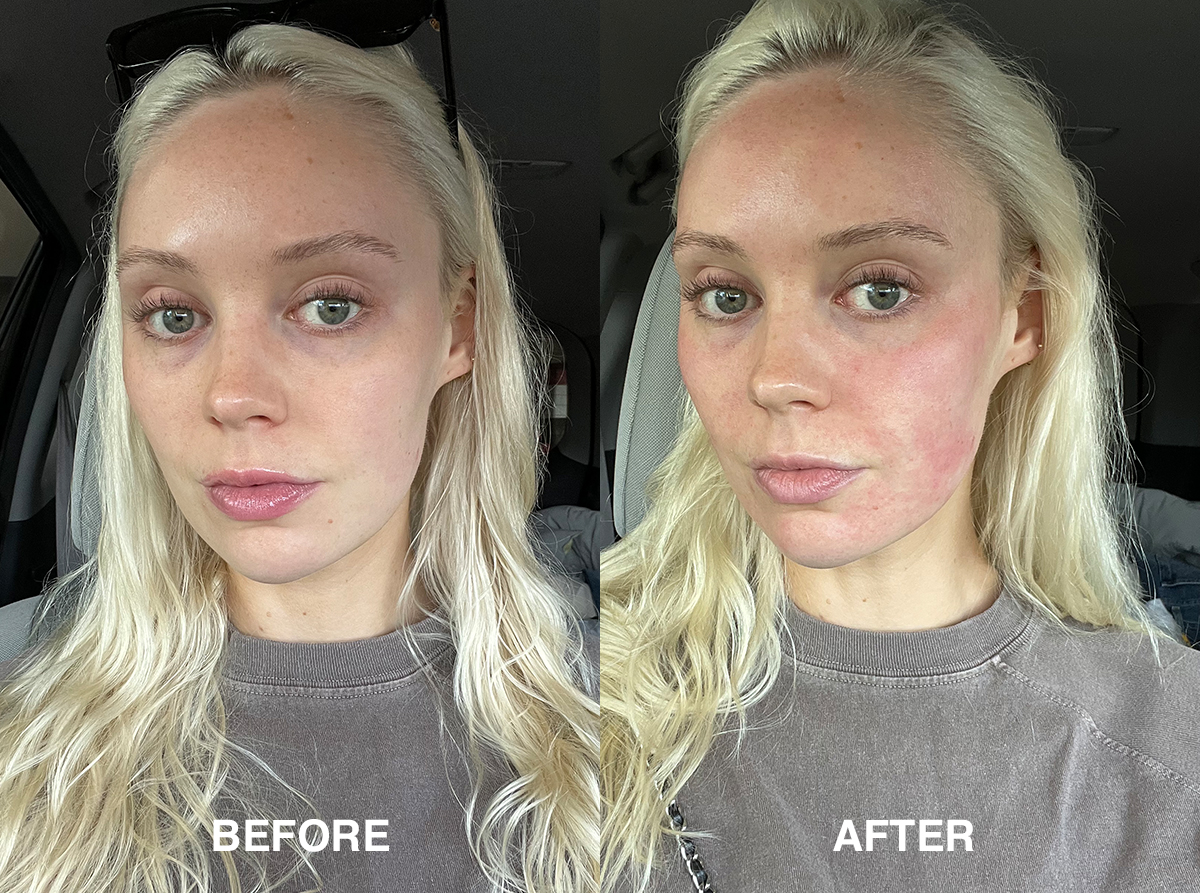
Lee told me my skin would look next-level the following day and said any makeup I applied would apply flawlessly, and she wasn't wrong. (See the photo below!) And, to my even greater surprise, when I attended a work event two nights later, practically everyone in the room commented on how amazing my skin looked, and I even had a random stranger chase me down after the event as I got into my Uber to ask how my skin looked so clear and smooth.
Suffice to say, I'm now completely sold on the skin-improving powers of cryofacials, especially when they're executed by pros like Lee and stacked on top of other investment-worthy skin treatments. Curious to know more? I asked Lee to explain everything anyone could possibly ever want to know about cryofacials below. Keep scrolling!

What is a cryofacial?
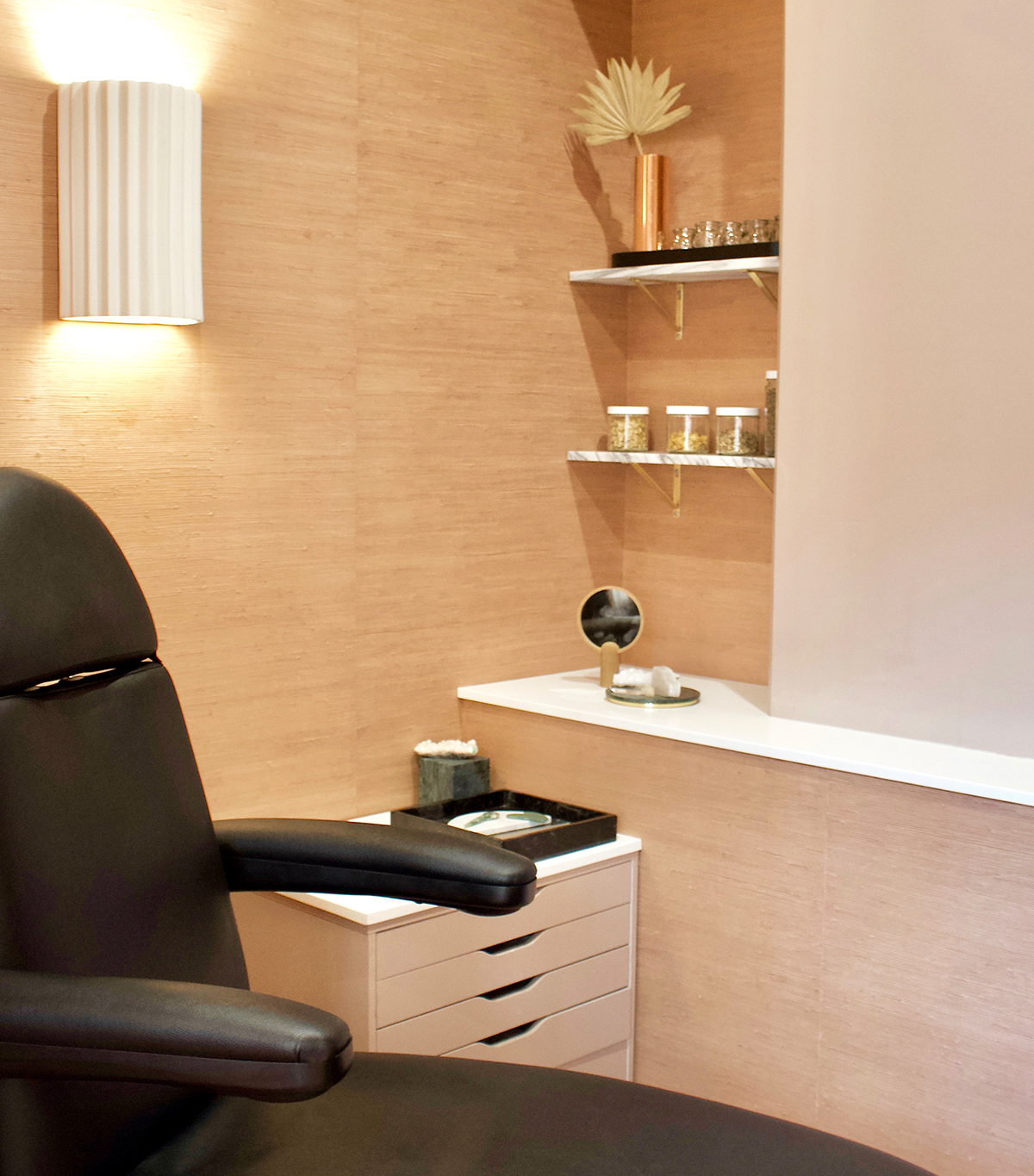
"There are several forms of cryofacial that range from manual to machine application, but essentially they all involve applying the cooling benefits of liquid nitrogen to the face," explains Lee. (Translation: it's like cryotherapy for your face!)
The potential benefits of a cryofacial:
According to Lee, the main benefits of a cryofacial are light exfoliation leading to skin texture improvement and tightened-up pores, a reduction in redness and inflammation due to the cold temperature, and increased circulation from the skin blood vessels going from vasoconstriction to vasodilation in the warming up process. All in all, you'll likely wind up looking tighter, brighter, and more even.
What to expect price-wise:
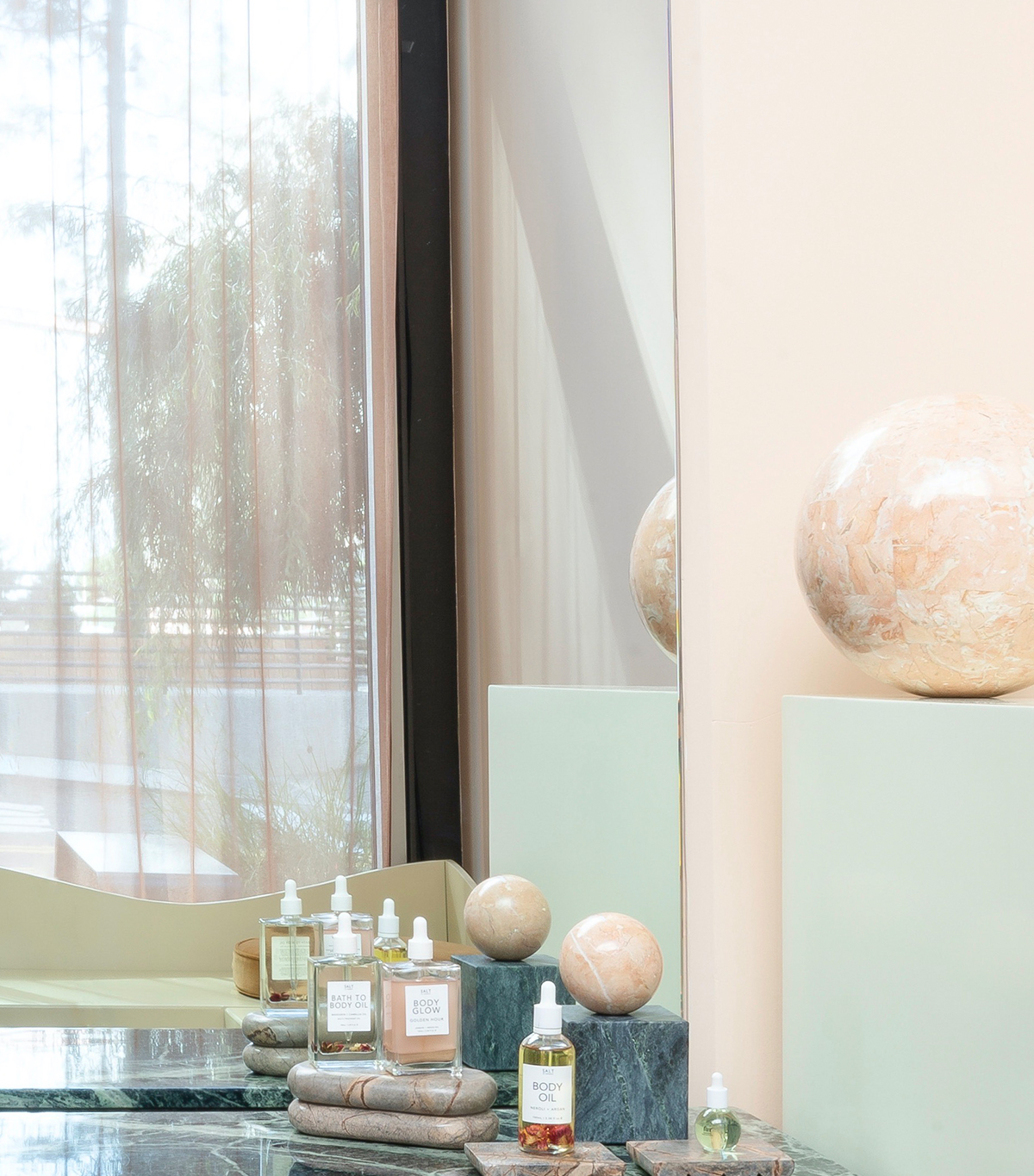
This one really depends on where you live, who you see, and the type of cryofacial you get. Lee tells me cryofacials can be a quick add-on to a procedure or treatment a patient is already getting. (For instance, my cryofacial was executed post-microinfusion to help cool my skin and decrease redness.) That said, cryofacials can also be used as an a la carte facial experience for $50 to $140 depending on where you live.
What to expect during a cryofacial:
"Usually, the skin is cleansed completely at the beginning of the treatment so that the cryofacial isn’t constricting the skin while it has makeup or debris on the surface," notes Lee. I showed up to my appointment makeup-free and was cleansed before my microinfusion treatment, so I was good to go and perfectly prepped for the cryofacial component that followed.
Next, Lee took what looked like two huge cotton swabs (roughly the size of a foot-long wand) dipped in liquid nitrogen and waved them over my face (like the true, skin fairy godmother that she is!) for about two to three minutes. (Lee says some clinics may also use a device that simply mists out the liquid nitrogen.) Typically, your practitioner will concentrate the treatment in certain areas like the T-zone and other areas with general redness in order to receive the most benefit.
While the thought of having liquid nitrogen waved over your face might sound miserably chilly, the coldness factor was less intense than I had anticipated and the light cooling sensation was super-refreshing and helped bring my face down from super angry and red to a lighter shade of pink.
What types of results can someone expect and how long do the results last?

"Skin texture improvement, redness reduction, and a decrease in any active acne as well as prevention of acne due to the decrease of inflammation, vasoconstriction, and increase of new blood circulation after the cooling process," answers Lee. While the results are relatively temporary (you get a lot of instant gratification with this one) Lee says you can expect any benefits you notice to last a couple of weeks at most and to help maintain your results, you can continue the magic with at-home cooling methods via gadgets like ice rollers or cooling gel bead masks. Again, getting this type of treatment in the office is usually due to a post-procedure treatment or as a step during a facial to alleviate inflammation.
As far as frequency, Lee tells me that technically someone could get a cryofacial as often as once per week since there's really no recovery or downtime involved, but, if your budget allows, she recommends adding it to your self-care routine once a month alongside a deep facial, laser procedure, or microneedling session. And, since it's a low-risk treatment, it's a relatively safe option for pretty much everyone, so almost anyone is a fantastic candidate.
Final thoughts:
All in all, I would highly recommend adding a cryofacial as an add-on to a more "intense" facial treatment (like microneedling, microinfusion, lasering, etc.). Normally, it takes my sensitive skin hours and hours (and sometimes even days) to calm down after skin treatments, but the cryofacial lessened my redness by about 50% while I was still in the office, and I definitely noticed that my pores appeared tighter, as well.
While I do recommend this treatment, I also want to acknowledge how important it is to find an experienced practitioner you trust to perform it. "If cryofacials are applied too close to the skin in an uneven manner, exfoliation that is too deep for the skin in the manner of a type of "freezer burn” may happen," explains Lee. In a dermatologist's office, this technique can be used in a controlled manner for textural issues such as seborrheic keratosis, but in the hands of an untrained professional, damage can be done to the skin. Be sure to seek skin professionals who regularly perform cryofacials for the best outcome."
Want more? Shop the cooling and cryo-inspired beauty products we love:
Next: My Skin Drastically Changed After Having Kids—Here's How I Got My Glow Back
Erin has been writing a mix of beauty and wellness content for Who What Wear for over five years. Prior to that, she spent two and half years writing for Byrdie. She now calls Santa Monica home but grew up in Minnetonka, Minnesota, and studied writing, rhetoric, and communication at University of Wisconsin, La Crosse. She studied abroad in Galway, Ireland, and spent a summer in L.A. interning with the Byrdie and Who What Wear family. After graduating from UW, she spent one year in San Francisco, where she worked as a writer for Pottery Barn Kids and PBteen before moving down to L.A. to begin her career as a beauty editor.
